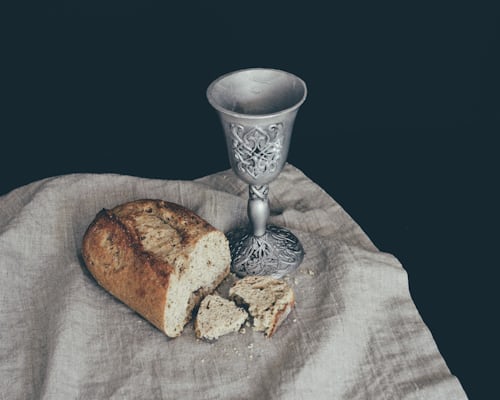Christians remember Jesus’ resurrection from the grave during Easter, which marks Easter Sunday, the third day after his crucifixion.
According to the scripture, Jesus Christ was crucified for our sin, died for us, and was resurrected on the third day (1 Corinthians 15:3-7). Surely, the resurrection of Jesus Christ is an encouragement to every believer that we have already won the battle against sin. The New Testament states that Easter occurs three days after Jesus’ crucifixion.
WHAT IS EASTER?

In the Christian faith, Easter is a pivotal date, and it serves as a reminder of Jesus’ death and resurrection. As Jesus Christ, God’s Son, fulfilled prophecy and died on the cross, he gave the gift of eternal life to those who put their faith in him. The progression of the Easter season starts with a Lent (a period of abstinence from food), dedicated to fasting for 40 days. This used to be a time of remembrance and repentance for many churches.
Interestingly, Ash Wednesday marks the beginning of Lent, which ends on Good Friday, the day of Jesus’ crucifixion. The Easter’s “Passion Week” begins immediately after the lent fast, which includes Palm Sunday, Maundy Thursday, and Good Friday (the “Last Supper,” where Jesus met with his disciples to observe Passover).
WHAT’S THE CONNECTION BETWEEN EASTER AND PASSOVER?

“And when He had given thanks, He broke it and said, “Take, eat; this is My body which is broken for you; do this in remembrance of Me.”
Before Jesus’ crucifixion, he celebrated Passover with his disciples and family. The Last Supper is the name given to this occasion. At Passover, Jews recall their liberation from slavery in Egypt. In this Passover meal, Jesus told his disciples that the bread symbolizes His body that would not be broken. The wine represents his blood that would be poured out for the forgiveness of sins. (Matthew 26:17-30).
To commemorate Jesus’ death and resurrection, the act of sharing bread and wine at Communion is still performed in churches and other places of worship. Before Jesus was taken away, he was praying in the Garden of Gethsemane after the Passover meal.
When you think of Easter, what comes to mind first? As a Christian, the cross or the empty tomb may be the first image that comes to mind. An onslaught of media images and merchandise on retail shelves encourages the general public to associate Easter with the Easter Bunny. So, how did an Easter involves a bunny distributing eggs come to be?
WHY EASTER EGGS?

The Easter egg is the most recognizable symbol of the Easter holiday. As with many other foods, eggs date back to pre-Christian times. We don’t know why it became associated with the Easter holiday. Eggs were considered a symbol of life in many ancient cultures.
The Hindus, Egyptians, Persians, and Phoenicians believed that the world began with a gigantic egg⎯a symbol of new life). Eggs were given to Persians, Greeks, and Chinese during spring festivals. According to other accounts, people in Egypt, Persia, Greece, and Rome celebrated spring festivals by eating eggs that had been dyed.
Early Christians decided that eggs could be used as a symbol of life to commemorate Christ’s resurrection. Moreover, in some regions where eggs were forbidden during Lent, they were a delicacy at Easter. Some speculate that early missionaries or knights of the Crusades may have brought the tradition to the West because many of the earlier customs were Eastern in origin.
EASTER IS A TIME FOR GETTING NEW CLOTHES

People have always associated new clothes and beginnings with a fresh start. As early Christians were baptized at Easter Vigil, they were given new white robes to wear during the service. People began to wear new clothes to celebrate their baptism into Christ, and the practice soon spread to include everyone.
EASTER IN THE CHRISTIAN TRADITION
Easter is a time to celebrate Christ’s victory over death, which is the central theme of the holiday. As a result of His resurrection, all who put their faith in Him are now guaranteed a place in heaven. During Easter, Jesus’ teachings and sermons are reaffirmed to the fullest extent of their validity. All the world would have known about Him if He hadn’t come back from the dead if He hadn’t been raised from the grave.
All of this was disproved by Jesus’ resurrection, which proved conclusively that He was indeed the Son of God and that He had overcome death for good. Christ’s resurrection from the dead is the central theme of Christianity. Our preaching and hope are in vain if Christ is not resurrected (1 Corinthians 15:14). Of course, there would be no Christian preaching or faith without the resurrection.
For to this end Christ died and rose and lived again, that He might be Lord of both the dead and the living.
Romans 14:9
The reason we celebrate Easter is because God lived the life we should have lived and died for us. I can’t think of a better reason to celebrate. For us to share in His resurrection experience! Even if you’re not Christian, Easter is an important religious holiday. May God’s blessings be for you this Easter and always.


